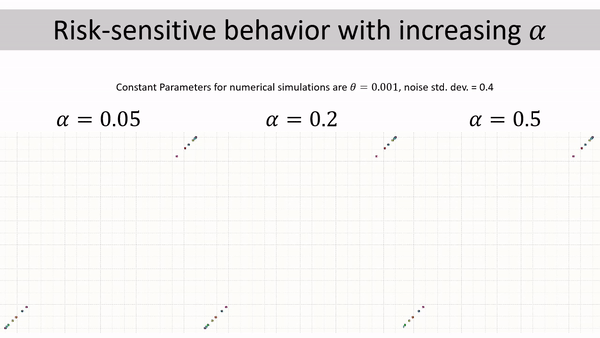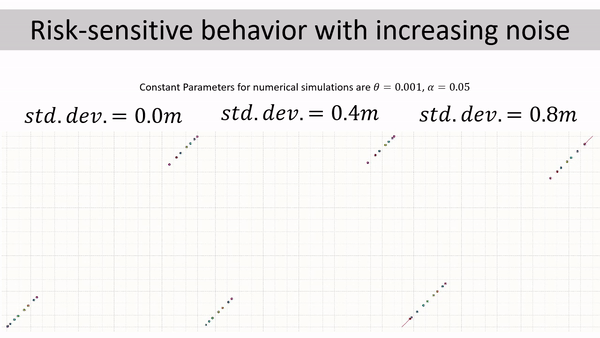Data-Driven Risk-sensitive MPC for
Multi-agent Systems
This project was awarded "Most Innovative Project" in Student Innovation Grant Program.
Preprint of this work is available here.
Parts of this work were submitted as Bachelors thesis and ongoing Masters thesis (part I) at IIT Kharagpur.
Safe navigation is a fundamental challenge in multi-robot systems due to the uncertainty surrounding the future trajectory of the robots that act as obstacles for each other. In this work, I propose a principled data-driven approach based on receding horizon optimization subject to collision avoidance constraints formulated as distributionally robust conditional value-at-risk (CVaR) of the distance between the agent and a polyhedral obstacle geometry. CVaR-based constraints capture the uncertainty against errors in the predictions of surrounding objects providing user the ability to dictate the risk-appetite. Additionally, tractable finite-dimensional approximations of this class of constraints are derived for Wasserstein distributionally robust optimization problems for low sample size. The effectiveness of the proposed approach is illustrated in a multi-drone navigation setting implemented in Gazebo platform.
Three key features of the project are:
Handling Uncertainty: Risk-sensitive behaviour of the agent depends on how the uncertainty in handled by the MPC. Based on predictions of other agents and collected state data, I developed techniques to formulate the data-driven risk constraints for collision avoidance under uncertainty.


Collision Avoidance for Polyhedral Obstacles: . I represent the surrounding in term of 3D polyhedrons to formulate collision avoidance constraints. This is more accurate representation, instead of circular or spherical assumption prevalent in prior works.

Distributed Computation: A single centralized problem has a large size and is computationally infeasible for real-time deployment. Therefore, I present a distributed approach that effectively exploits the parallel computation and inter-agent communication.

